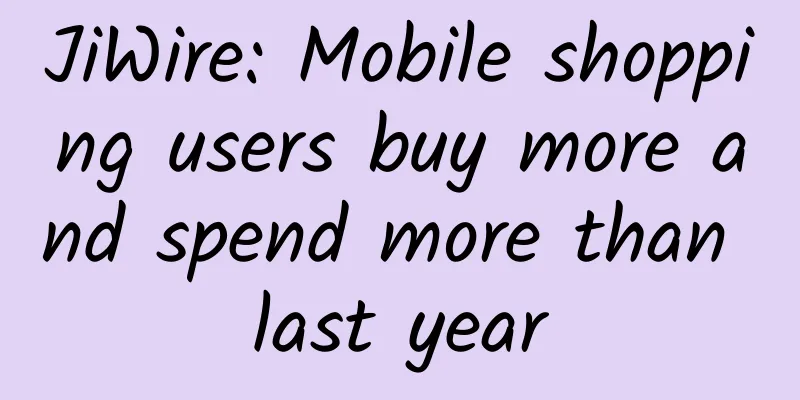JiWire: Mobile shopping users buy more and spend more than last year

|
We’ve talked a lot about smartphone shoppers, who are the pioneers of mobile purchasing. There are many signs that users will buy more things on their phones, especially during the holidays, which will be a big opportunity for mobile shopping. |
<<: Lingtuan.com: National group buying market statistics report for October 2011
Recommend
What are the functions and effects of processed Shouwu
Many people may know the medicinal herb Polygonum...
Causes of shoulder joint pain
If there is a noise and pain in the shoulder join...
How to realize space classroom? Post-90s astronauts build a "highway" for communication between the earth and the sky
First published: January 12, Xinhua Daily Telegra...
The efficacy and function of Trichosanthes oil
Trichosanthes oil is a common type of traditional...
What is Pueraria lobata powder?
Pueraria root powder is a relatively nutritious a...
Side Effects of Chinese Medicine
Maybe many friends think that Chinese medicine an...
Where is the world's longest existing ancient city wall? Not in Beijing, nor in Xi'an...
The basic exhibition hall of Nanjing City Wall Mu...
What is a keel?
Dragon bone is actually a common Chinese medicina...
What are the types of Chinese herbal lipid-lowering drugs?
My mother is getting older and fatter. What kinds...
The efficacy and function of Chuanlianzi
Toosendan is a plant with relatively high medicin...
Is American ginseng really American ginseng?
Ginseng is the most common tonic in our lives. It...
What are the benefits of drinking senna leaves in water?
Drinking senna leaves soaked in water actually ha...
The efficacy and function of Asteraceae
As for Aristolochia scabra, I think some people m...
What are the effects of Xianlingpi
Many friends will inevitably drink when socializi...









